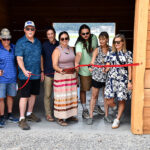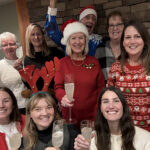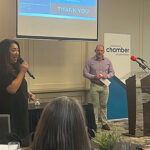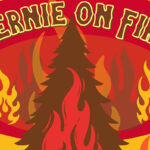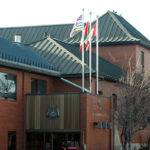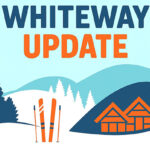Home »

11:11 – the story begins
Prelude: The Space of Nothing
Nov. 26, 2011
It was 11:11 p.m. when we arrived at the cabin.
Like everything else in our world, it was abandoned, quiet, cold and dark.
A strong north wind followed us from British Columbia down into northern Idaho and the late November skies threatened snow, which had been playing hide-and-seek with seasonal routine thus far in these parts.
We unloaded our things from the car and exhaled huge impaired sighs of relief when we hit a light switch and the cabin lit up. Another sigh of relief resulted when we turned the thermostat up and the electric heaters, located at strategic locations in the walls, hissed to life with nostril-nudging metallic crumpling stretches and yawns.
“At least we’ve got power,” I said, relieved. We had been seeing places lit up and other signs of electrical life in a now mostly lifeless world since everyone disappeared, leaving us seemingly alone.
It wasn’t a dream. Not anymore. We were both awake and constantly wondering what kind of madness we had descended into together. We couldn’t check every lit up home or building but we hadn’t seen another human in more than two weeks. We hadn’t even seen cows or horses or most of the rest of the animal kingdom, except for crows/ravens and cats.
Disbelief, anger and despair had turned into light acceptance, tainted with a constant nagging grief, as our searching continued to result in… nothing.
The drive from Cranbrook to our cabin at Lake Cocolalla, 10 miles south of Sandpoint, Idaho, featured what had become ‘normal’ for us these past few weeks — nothing.
Not a single vehicle passed us on unattended and abandoned highways and the only vehicles we passed were scattered dangerously along the roadways. Left to their own devices, they rolled, careered and crashed into what came next. They were on their sides in ditches, against trees in the forest, crumpled against each other and awry all over, just like they were in Cranbrook. There were cars and trucks everywhere, but no drivers.
No people — anywhere.
We had to weave through a cluster of vehicles at the Kingsgate border and kept expecting someone to run out and admonish us for not stopping. We hoped someone would come out.
But we were alone… utterly and completely and we could not fathom why the two of us were left as apparent caretakers of a once teeming, busy and often seemingly doomed world.
The airways were silent; televisions offered static or silence or loops of all-the-more inane drivel such as afternoon soaps and talk shows, which were just getting warmed up for another day of advertiser soaking and societal disregard when everyone — disappeared. The Internet was on pause. Chat sites were still; news sites featured items from Nov. 11, 2011, the day the stillness came. Then nothing. No word on what had happened. We searched for hours and hours on end but could not detect a cry from the cyber wilderness. Facebook was faceless. Twitter did not tweet. There was nothing.
No planes passed overhead. We called numbers on cell phones but there were no answers — from our kids, from our friends and family members. Everyone had just disappeared.
We hadn’t seen any sign of life since Nov. 11. Not a wisp of smoke from a cabin, not a passing vehicle, not even a deer, which tended to be everywhere, threatening to catapult themselves into your vehicle grill or windshield.
We ventured away from home to places we knew, to where we had friends and family and found their towns abandoned and in the same neo-post human life conditions. Now and then we’d come upon a startling sight, such as the Trans-Canada Highway overpass at Canmore. The westbound lanes were completely clogged by a plug of higgledy-piggledy cars, semi-trailers and pickup trucks. I studied the pile-up and was able to determine how it occurred, tracing each vehicle back as best as I could and then moved them forward together in my mind. It would have been special to observe and had anyone been in those vehicles, and from all our checking, there weren’t any people in any crashed or abandoned car, they would have been pizza pops left in the microwave too long.
We looped eastward out of the Rockies into the foothills of southern Alberta and found only crows and cats. Eventually, we made our way home, despondent and in crisis, though we masked the dream-like emptiness by making the most of our ‘freedom.’ Yes, you can say we’re a reckless couple — one of those couples that gets other couples in trouble, because usually only one person in a relationship can be a full-on hedonistic nut biscuit at any given time. Not Carrie and I.
Carrie was like an angel to me. She entered my life — or to be more universally fair — we entered one another’s lives 11 years earlier. We were both married and merely crossed paths from time to time, because of our jobs. I was the editor of a small town newspaper based in Invermere, B.C. and she was an artist/photographer who moved to the area from Dawson Creek, to be closer to home, which was Cranbrook, 80 miles south.
I wrote a story about her when she did a show at a local gallery and a friendship slowly grew, cultivated by a mutual attraction hidden behind our wedding bands and a mutual penchant for pounding drinks and babbling like deranged pirates until bars closed.
So it made sense, in a way to us, that the world had stopped and we were left alone in it. We were able to escape its clutches and cacophony so well when wanted.
She divorced two years after moving to ‘the valley,’ and moved to Cranbrook.
Having to attend regional government meetings once a month, I would call her when in town and we stumbled down a few semi-legendary Dionysian hallways together.
Two years after that, my madness and stupefying loathing of my job, so sadly blunted by the shallow-headed silliness of corporate weasels who care not a whit for journalism and hence provide a sterile, yet decayed work environment compounded to create a perfect storm of ruin and I soon found myself in Cranbrook, unmarried and bankrupt.
Carrie was leery of me at first. We still enjoyed bashing one another’s skulls in with booze and laughing together until the sun rose, all-the-world’s-problems-solved, but “there is something about you,” she would say to me. “Something wrong.”
We’d laugh at that, have a drink and soon I had her completely brainwashed into loving me, beginning an 11-year run of total happiness, interspersed with flurries of financial panic as we struggled to make ends meet.
Two years later my father died and with inheritance money we scrambled out of debt, bolstered our business and had enough left over to buy our cabin at Lake Cocolalla.
We opted for northern Idaho over the closer and more in-your-face beauty of southeastern B.C. because it was much cheaper. Real estate speculators, oil barons, oil barons’ Igors and oil barons’ Igor’s pet weasels flooded into places like the Columbia Valley and gobbled up lake front, lake view, lake-glimpse and ‘lake just over there behind the four-storey condos’ properties like bears mowing down berries on their way to hibernation.
We were able to get an almost lakefront cabin, with five bedrooms, two bathrooms, a large open kitchen and living room separated smartly by a big, friendly, festive island. A stone fireplace warmed up one lake-facing corner, while a big-screen television secured the other. In between those corners were four large picture windows and two glass doors that opened onto a wrap-around deck. In short, the place was bigger and nicer than our condo in Cranbrook, so we tended to head down quite a bit. Besides, we could behave like reprobates down in Idaho, whereas we had to behave like civilized chamber of commerce members in Cranbrook. That behavior suited the always-friendly and socially radiant Carrie; not so much for me, being a typical curmudgeonly egomaniac with a fondness for proving his Irish-Viking heritage on a regular basis.
Our lives were as perfect as one can hope for, if perfection should be scribbled on one’s life goals list. Between us we had six kids. Carrie had two sons and a daughter from her marriage, and thanks to cranking out kids when she was still one herself, they were all in their early 20s. I had two teenaged stepsons in Invermere and a teenage daughter in Des Moines, Iowa.
I had her sent there after reading Bill Bryson’s The Lost Continent: Travels in Small Town America. No. That’s a lie. Her mother, who I married for some reason lifetimes earlier, moved back there with my toddler in tow, making me the distant dad who sees her once a year in the summer, writes now and then and never calls enough.
Carrie and I pounded away at a small communications/publishing company and made just enough to live on and have fun with — much of it across the line at Lake Cocollala and area or the occasional jaunt to Whitefish, Montana, where I continually prowled for the scum whores who dropped a tab or blob or blotter or crumbly-bit of crystal of ecstasy into Carrie’s wine one loopy, bendy, bouncy, tiring and ultimately enormously pleasant, sexually ferocious evening a few years earlier.
So it made perfect sense to us to head to our ‘happy place’ when it was obvious everyone had disappeared and the world had become a dead place.
With guns aplenty, sacks of cash liberated from the empty banks (old habits), bags of food, a cooler full of cans of beer and mini bottles of pinot grigot and other sundry survival gear, we set out one blurry day for our cabin — in search of something to fill the growing nothing.
Making fresh tracks on snow covered Highway 3, we carefully picked our way west and then south at Kingsgate, down Highway 95 to Bonners Ferry — a full 50 kilometres — and once again, not a sign of life.
For the hell of it, we pulled into the Kootenai Casino. Old habits, we laughed.
The doors were open and we nervously entered the casino foyer. The harsh, acrid scent of stale smoke from a plastics fire invaded our senses and in the murk of the once bustling casino, we realized our feet were crunching over ice. There had been a small fire in the smallest of three casino rooms, but the sprinkler system had beaten it down, apparently. Must have been a smoke left dangling in an ashtray. No life, again. There was power, though. And we gambled and drank like it was 2010.
After some empty fumbling about we continued down the highway, up the hill out of the Kootenai Valley and out of Bonners. We continued south to Sandpoint where, again, we hoped we’d come upon some kind of sign of life. Optimism seemed to be our only companion. Why we were so hopeful escaped me. Carrie tended to be the optimist and I was the pessimist, but it just made plain sense to remain hopeful that we would encounter another soul or two. We couldn’t be the only people left… alive. Carrie, especially, seemed convinced that we’d wake up one day and things would be back to the way they were before the disappearance.
For the two hundredth time we pondered our situation, over chilly beverages and between bouts of driving that required concentration, such as through areas where vehicles were strewn here and there, such as over the cluttered Lake Pend O’Reille causeway leading out of Sandpoint.
After more than two weeks of searching, fighting through Elisabeth Kubler-Ross’s time-tested path of denial, anger, bargaining and depression, we finally accepted our situation, as best as one could accept such an unexpected turn in life and decided to broaden our search parameters.
We pondered that we had been somehow killed and this was a form of bardo, where we were wandering about in limbo awaiting our passage to heaven. Was this Heaven? Hell?
I joked that it was likely we were in hell as I was sure I had muffed the entrance exam to heaven. But Carrie was an angel. Surely she’d qualify.
The spiritual leaders of the past few millennia had gotten things horribly wrong, I assumed. Carrie disagreed, saying she believed the Bible’s words were beginning to emerge out in the open, free from the wrappings of obscure ancient-speak.
Our arrival at the cabin, where we had enjoyed many family and friend-filled weekends the past few years, was preceded by a rambling search for life.
First we headed north to Invermere; nothing but crows and cats.
Then we headed down the surreal highways, littered with empty trucks and cars, north to my former home in the Columbia Valley, then to Banff, Canmore and finally to Calgary, where we were sure we’d find people. The enormity of the emptiness in Calgary was indescribably disturbing.
It was easy getting gas to get around. Power remained on in most places we visited, at the beginning. In Calgary, we actually stopped at a couple of traffic lights when the green turned yellow and then red.
We howled with laughter. Old habits, eh? The people and most of the animals had disappeared, but old habits remained.
After Calgary, we headed south to Fort Macleod, then turned west and headed back to Cranbrook, lost, alone, searching and terrified.
We held onto one another at night, often crying, forever questioning and always grieving.
We had not heard from any of our kids and we feared the worst. The ‘not knowing’ aspect was driving us nuts, robbing us of sleep and making us drink far too much. My behaviour grew ever more erratic, as I lashed out at a silenced world that I had often secretly wished would just go bugger off and leave me alone.
So we decided we had to go off in search of our kids. It was road trip time in a space of nothing.
Carrie’s oldest son and daughter lived in Cranbrook. We looked for them first, as well as her mom and dad and siblings. Nothing.
So we decided to head to Vancouver, where her other son lived.
Being a major city, we thought the odds of finding other people would be better there. However, we thought we’d nip down to the cabin, first… just because.
After that, we would head southeast to Iowa to search for my daughter. Because. What else did we have to do?
So we loaded my X-Trail and began our odyssey, which I am now imparting to you. This story was culled from my journal and regurgitated memories and it is all I have to do right now, so what the hell?
So please, humour me and follow along as I recount our adventures. All I can hope is that our story will be around for whoever needs information… to serve as a guide. To help direct life back toward me.
This was the prelude to the book ‘11:11,’ written by R. Ian Cobb. A new chapter will be published each week in e-KNOW’s Views section.
